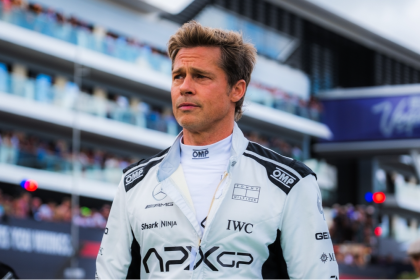In modern dating, an unexpected factor is coming to light, how family dynamics influence dating and reshape modern romance birth order. Long considered a relic of childhood anecdotes, birth order now garners renewed interest as researchers and relationship experts examine its role in shaping personality traits and dating behaviors. According to emerging insights, the order in which one is born may subtly guide one’s approach to love and conflict, affecting everything from leadership tendencies to adaptability in relationships. The idea is that early family experiences lay the groundwork for how individuals handle intimacy, responsibility, and even vulnerability in romance. Though birth order is not destiny, many believe that its influence on personality can help explain differences in how people relate to partners.
Family position and relationship patterns
First-born children often assume leadership roles, cultivated by early responsibilities and high expectations. As the eldest, they tend to develop a structured approach to life that can carry over into their dating practices. This leadership quality can manifest in a desire for stability and clarity in relationships. However, the same traits may sometimes create challenges if their need for control overshadows a partner’s desire for spontaneity.
Middle children, often navigating the role of peacemaker, develop strong diplomatic skills. Their unique position between older and younger siblings encourages them to cultivate empathy and compromise, making them natural mediators in relationship disputes. The experience of balancing multiple voices at home can translate into a flexible approach to partnership, where open dialogue and negotiation are key.
The youngest siblings, benefiting from a more relaxed set of expectations, tend to be more spontaneous and socially adept. Their upbringing often affords them the freedom to experiment and embrace change, which can be an asset in the dynamic world of modern dating. Their natural charm and ease in social settings can make them engaging partners, though it may sometimes lead to a less structured relationship style.
Only children, unburdened by sibling rivalry yet isolated from constant familial negotiation, often develop a blend of these traits. They can be both independent and deeply invested in one-on-one connections. This duality may lead to a heightened sensitivity in relationships, where the balance between self-reliance and intimacy is crucial. The absence of sibling comparisons can foster a strong personal identity, though it might also result in higher expectations for partners.
Navigating compatibility in modern dating
Modern daters are increasingly looking beyond superficial traits to find deeper connections. Birth order offers an intriguing lens through which individuals can reflect on their own relationship tendencies. Recognizing whether you lean toward the leadership of a first-born, the mediating nature of a middle child, the spontaneity of a youngest, or the balanced outlook of an only child, can provide valuable insight into personal strengths and potential pitfalls in romance.
For many, understanding these dynamics helps in setting realistic expectations. A first-born might be drawn to stability and clear roles, while a later-born could seek flexibility and fun. Rather than prescribing a fixed relationship model, birth order serves as one of many tools for self-awareness. It encourages people to reflect on how family experiences inform their views on commitment, conflict resolution, and even emotional expression.
This perspective also underscores that no single factor dictates relationship success. While birth order contributes to one’s personality, it interacts with other elements such as individual values, cultural background, and life experiences. A holistic view of compatibility considers all these variables, creating a richer, more nuanced picture of what makes relationships work. In an era where dating apps and online profiles highlight endless filters and checkboxes, embracing the complexity of personality traits can lead to more meaningful connections.
The impact of digital platforms on dating dynamics
The digital age has given birth to countless online discussions about the role of birth order in dating. Social media platforms and dating apps now offer spaces for individuals to share personal experiences and compare notes on how family dynamics have influenced their romantic lives. These platforms have sparked conversations that were once confined to intimate family gatherings, democratizing insights into relationship dynamics.
Online forums allow users to explore topics like first-born responsibilities or the unique charm of the youngest child in a judgment-free environment. This digital exchange not only validates personal experiences but also challenges traditional dating narratives. As individuals post testimonials and engage in discussions, they contribute to a growing body of anecdotal evidence that supports the relevance of birth order in modern romance. This shift in conversation is encouraging some dating platforms to consider personality traits related to family background in their matchmaking algorithms, aiming to facilitate connections based on deeper compatibility factors.
Future research and implications
As interest in the effects of birth order on relationship dynamics grows, researchers are beginning to explore these connections more systematically. Future studies may reveal clearer correlations between birth order and relationship satisfaction, conflict management, and overall compatibility. Early findings suggest that while birth order is only one of many factors that influence romantic behavior, it holds promise as a lens through which we can better understand our dating tendencies.
These insights could have far-reaching implications for relationship counseling and personal development. By integrating an understanding of birth order into dating advice, counselors might offer more tailored strategies for managing relationship challenges. Additionally, as society becomes more open to discussing family influences, individuals may feel empowered to address long-standing patterns that impact their love lives. Ultimately, a deeper understanding of these dynamics promises to enrich our collective knowledge about human relationships.
The exploration of birth order in modern dating offers a fresh perspective on compatibility. While family roles do not determine destiny, they provide a valuable context for understanding why we approach relationships in unique ways. In a world where every connection is as varied as the individuals who form them, acknowledging the subtle influence of birth order may be the key to unlocking more fulfilling, authentic love.














